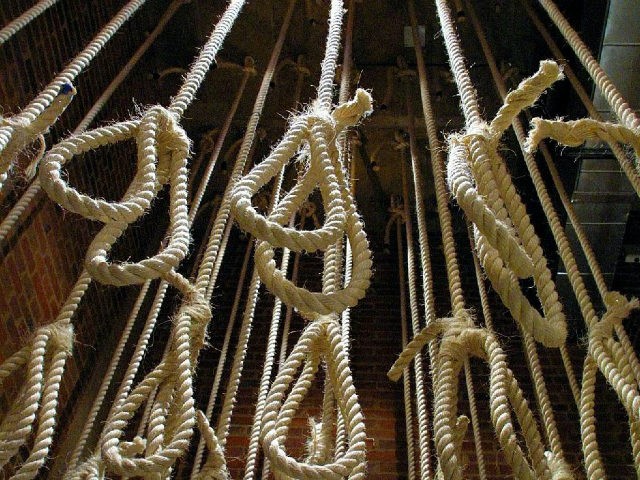Iranian authorities executed a former child bride this week on charges of murdering her abusive husband after she gave a false confession under torture, according to reports.
Zeinab Sekaanvand, 24, was 15 when she was forced to marry her husband. Soon into the relationship, Sekaanvand said that he started physically abusing her and his brother-in-law raped her. The family ignored her concerns.
Following his death in 2012, Sekaanvand was arrested on charges of stabbing him to death and confessed to his murder under torture. She later retracted the confession, saying she had been tortured and interrogated without access to a lawyer.
On Tuesday, two days after she delivered a child stillborn, she was sentenced to death by hanging at the Euromieh central prison, in the city of Urmiya in northern Iran. The execution was condemned by the likes of Amnesty International and the Head of the United Nations Human Rights Commission Michelle Bachelet.
“The execution of Zeinab Sekaanvand is a sickening demonstration of the Iranian authorities’ disregard for the principles of juvenile justice and international human rights law,” said Amnesty International’s Research and Advocacy Director for the Middle East and North Africa Philip Luther. “Zeinab was just 17 years old at the time of her arrest. Her execution is profoundly unjust and shows the Iranian authorities’ contempt for the right of children to life. The fact that her death sentence followed a grossly unfair trial makes her execution even more outrageous.”
He continued:
It appears the Iranian authorities are increasingly scheduling the execution of people who were children at the time of the crime at very short notice to minimize the possibility of effective public and private interventions. We are horrified by their continuous use of the death penalty against people who were under the age of 18 at the time of the crime, which is a violation of international human rights law. This is the fifth execution of a juvenile offender that we have recorded this year and we fear that it will not be the last unless urgent action is taken by the international community.
We continue to urge the Iranian authorities to immediately establish an official moratorium on executions, commute all death sentences with a view to abolishing the death penalty, and prohibit the use of the death penalty against people below the age of 18 at the time of the crime.
Bachelet described the case as “deeply distressing” and called for an end of Iran’s use of the death penalty.
“The serious question marks over her conviction appear not to have been adequately addressed before she was executed,” she said. “The bottom line is that she was a juvenile at the time the offense was committed, and international law clearly prohibits the execution of juvenile offenders.”
According to estimates from human rights organizations, Iran executed more than 500 people, many on unproven charges that are often politically motivated, in the past year. Just last month, three Iranian Kurdish men – Zaniar Moradi, Loghman Moradi, and Ramin Hossein Panahi – were executed on murder charges after reportedly giving a confession under torture.
Follow Ben Kew on Facebook, Twitter at @ben_kew, or email him at bkew@breitbart.com.

COMMENTS
Please let us know if you're having issues with commenting.